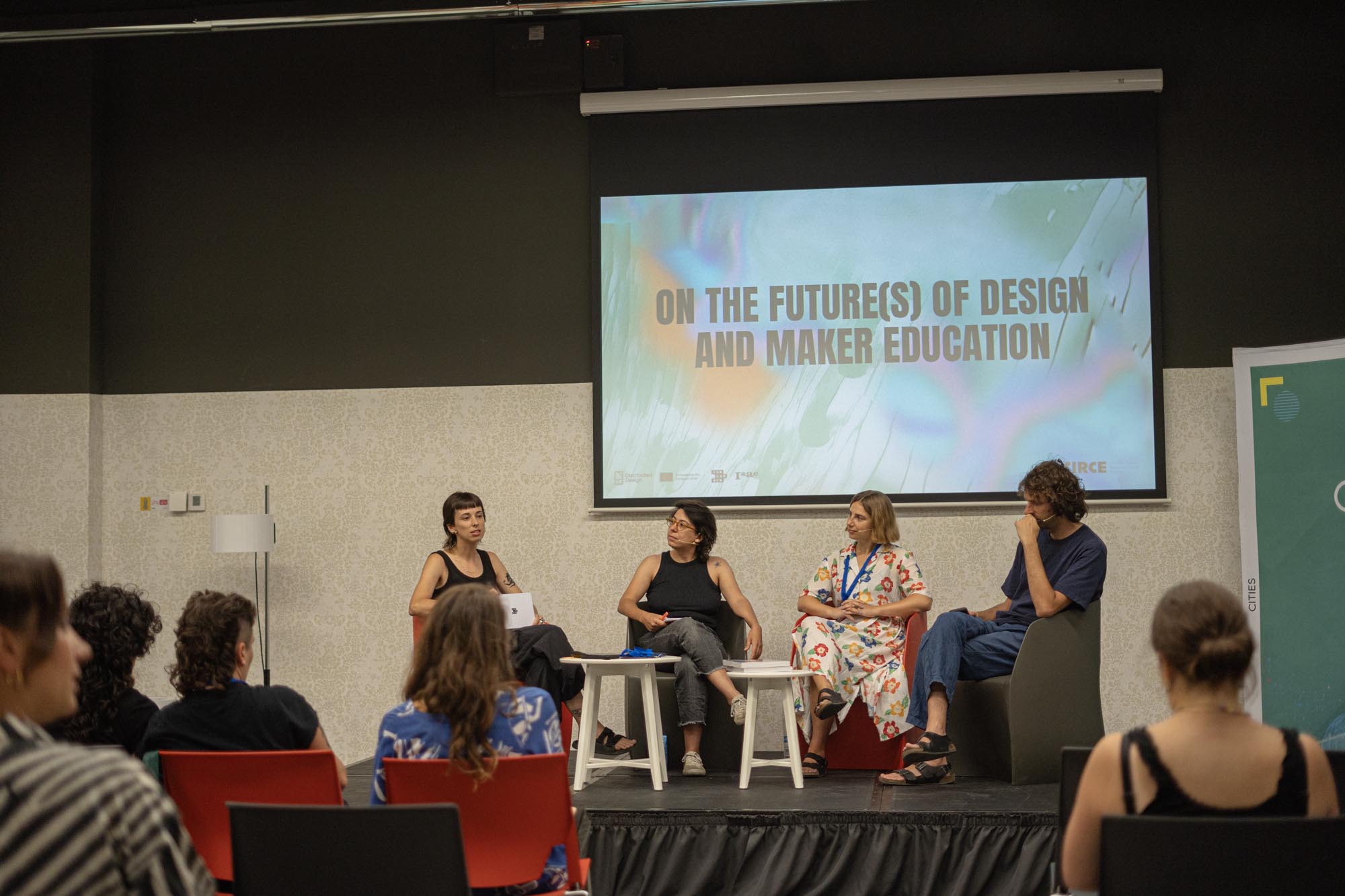Blog
The Bauhaus School
In 1922, Walter Gropius and his peers put in place an innovative learning approach that centers crafts and technologies. The Bauhaus school pioneered its interdisciplinary approach, combining a variety of practices and theoretical approaches. Though, in their eyes, their work went beyond reforming design, arts, architecture, and crafts education. They aimed to shape a way of thinking in society, a new “man”. The Bauhaus School may have closed in Weimar in 1933, but its ways of thinking, seeing the world, and working have lived on in the people who have experienced it. Its successors spread the Bauhaus ways of working in the New Bauhaus, founded in Chicago by Lászlo Moholy-Nagy, the Weimar architectural academy, and the Hochschule für Gestaltung Ulm – to name only a few. The Bauhaus School was the first of its kind and has modelled a curriculum and pedagogical model that is still inspiring educational models around the globe until today.
Fast forwarding to today, more than 100 years after the Bauhaus opened its doors, we find ourselves in the midst of an ever-changing world. What have we learned from the Bauhaus educational model? What are the ways of working that are still relevant today, and where are the pain points – the areas of opportunities in which we can improve and excel in design and maker education?
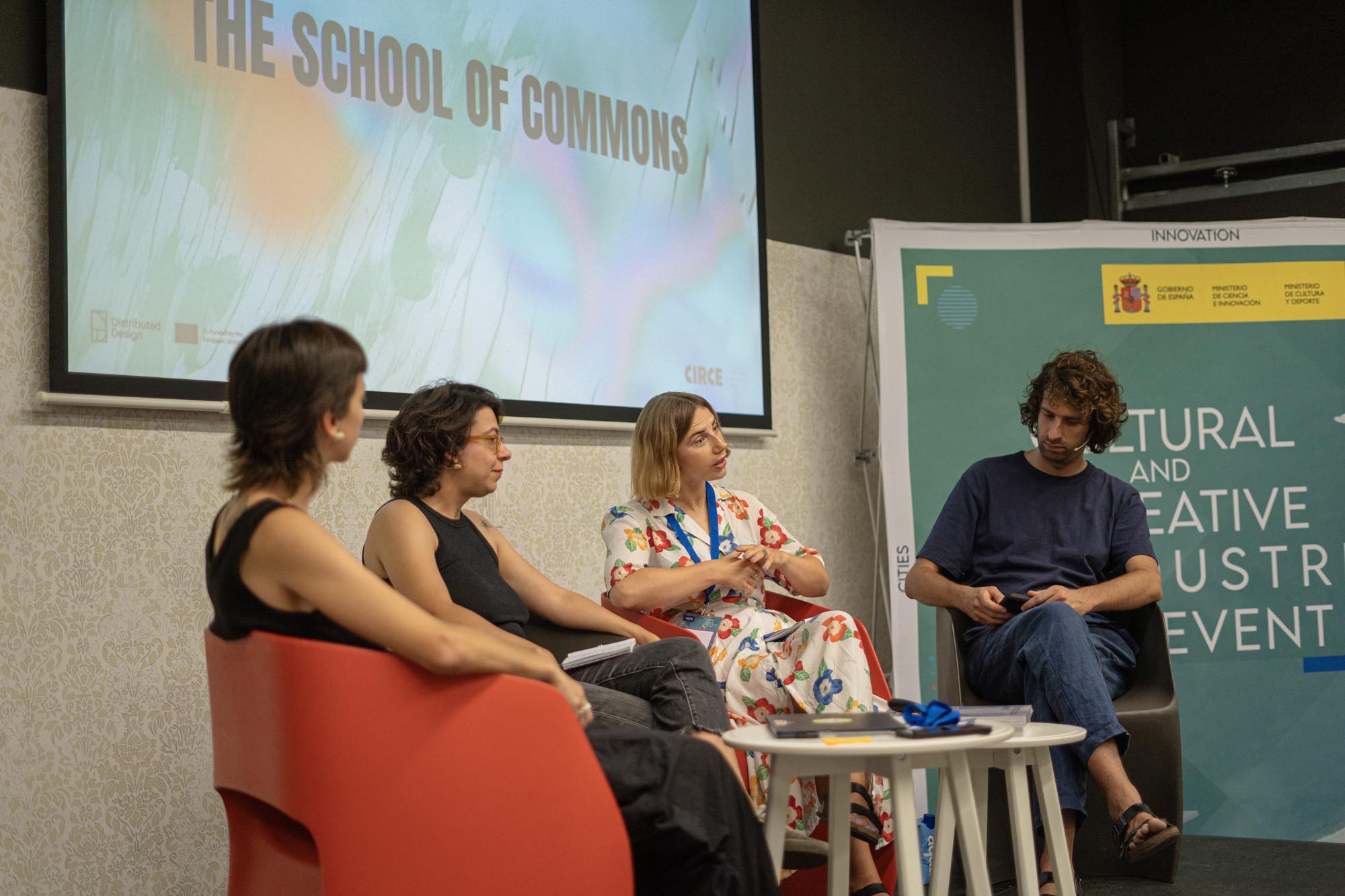
NEB Talks – the second in a series of three
In July 2022 the Distributed Design Platform met with Pablo de Soto Suárez, from LABoral (Gijón, Asturias), Maria Gil, from La Pinada Lab (Paterna, Valencia), and Nada Tozija, from TransfoLAB (Barcelona, ??Catalonia) in the first NEB Talks edition. Together we explored how cultural makerspaces and creative centres are contributing to a greener Europe, and focused on the topic of circular and open design for social inclusion.
This year we came together with Amy Gowen from the School of Commons at the Zurich University of the Arts (ZHdK), Barcelona-based organization La Creatura represented by Luiza Fagá, and Guillem Camprodon, director of Fab Lab Barcelona and the Master of Design in Emergent Futures at IAAC to critically reflect and explore the opportunities for pedagogy and curricula in the context of design and maker education for the New European Bauhaus. In the format of a participatory conversation the speakers and participants shared insights and experiences that reshape the landscape of design and maker education. Thinking and way of doing that fosters interdisciplinary thinking and nurtures a new generation of designers who are driven by social and environmental consciousness.
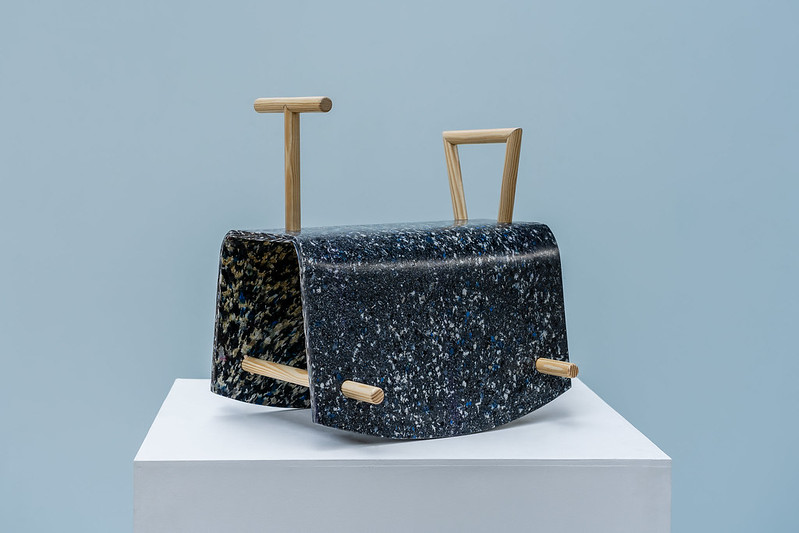
The Intersection of Design and Maker Education in Context of the NEB
The Distributed Design Platform advocates the kinship of design and maker education. Since 2017 its work has focused on combining the best of both worlds: design sensitivity and maker attitudes. We have been exploring this fruitful environment, plantings seeds, and watching saplings emerge from this convergence. These unique ways of knowing, being, and working have grown with the Distributed Design Community and can contribute to the New European Bauhaus vision.
In this framework, we see the potential of creating inclusive learning environments that nurture diverse talents and encourage unconventional and critical thinking. Seeking to empower individuals to become active creators of their environment, using a multidisciplinary approach to address real-world challenges.
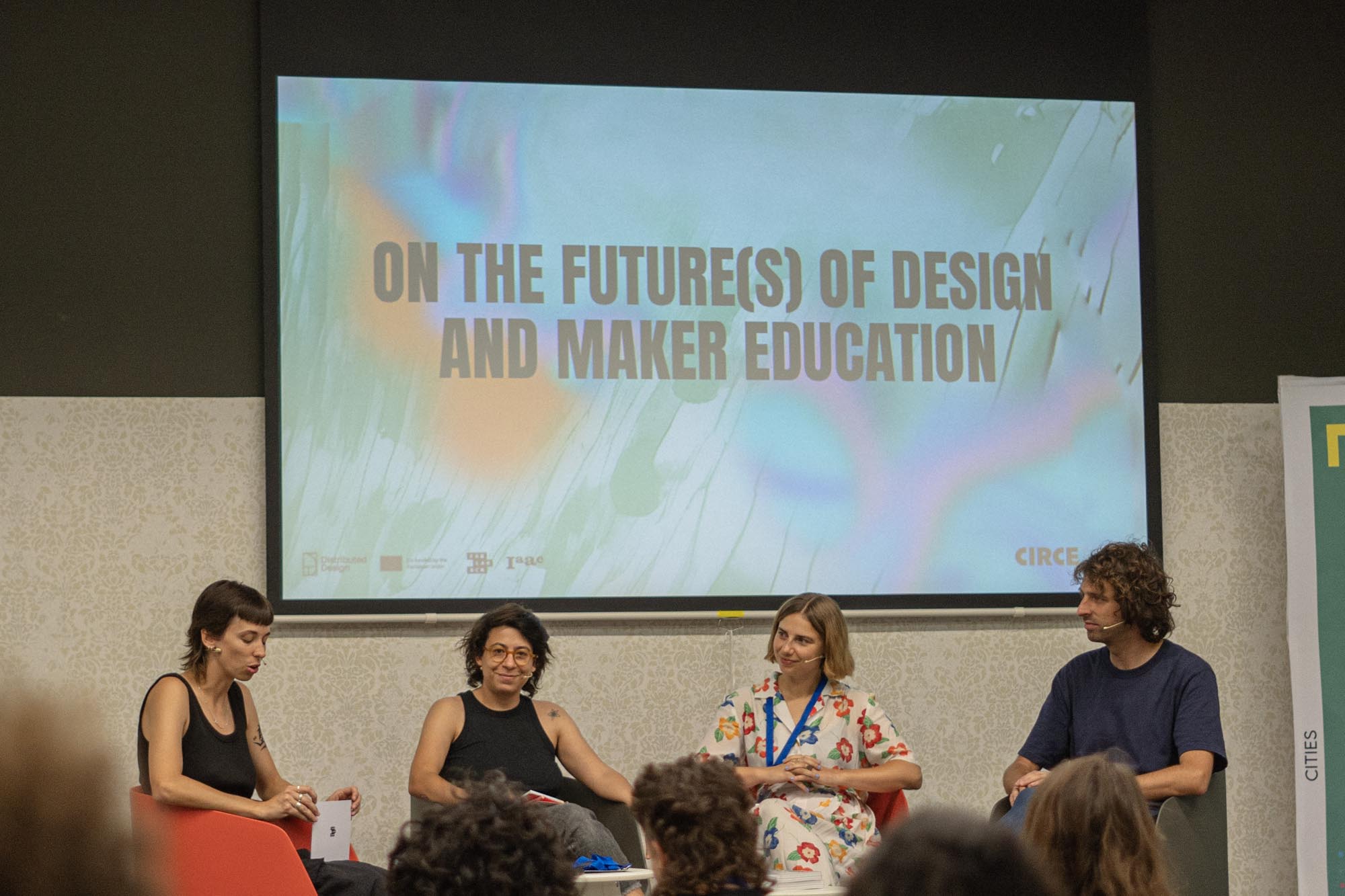
Organizational Models and Governance of Learning Environments
The first theme tackled during the NEB Talks focused on the organization and governance of learning environments. Amy Gowen from the School of Commons at the Zurich University of the Arts (ZHdK) emphasized the need for the horizontal design of the learning environment. The School of Commons has an open call for their program each year. Each participant brings their own themes and areas of expertise. Therefore each year the School of Commons takes shape in a different manner. There are some consistencies, like regular physical meetings in which all participants come together in an informal setting to exchange their experiences and network.
LaCreatura truly is a space for collaboration. As an organization they are not tied to one specific place in the territory, rather they find an adequate location based on the proposed workshops. LaCreatura does not set out a specific agenda – their community members suggest workshops based on the knowledges and expertises that they would like to share with others. Learning experiences range from web development to how to repair a car.
Both organizations play a facilitator for and with their community, they connect people and spaces and share resources where it is needed.
These types of horizontally organized learning environments which are co-lead with the learners offer a shared ownership of their educational journeys, fostering a sense of agency and empowerment.
Breaking Down Dualisms and Dichotomies
Traditional educational systems often compartmentalize knowledge into distinct disciplines, limiting the potential for cross-pollination of ideas. In this conversation, particularly, we advocated for breaking down dualisms and dichotomies between disciplines, encouraging designers and makers to explore the intersections of different fields. By doing so, learners can draw from a diverse pool of knowledge, leading to more holistic and innovative solutions.
This is reflected in the initial Bauhaus from the 1920s, in which learners have engaged with a variety of topics from crafts to color theory and studies of nature. All of these areas of knowledges benefit from each other and ultimately support holistic or systemic thinking in designers.
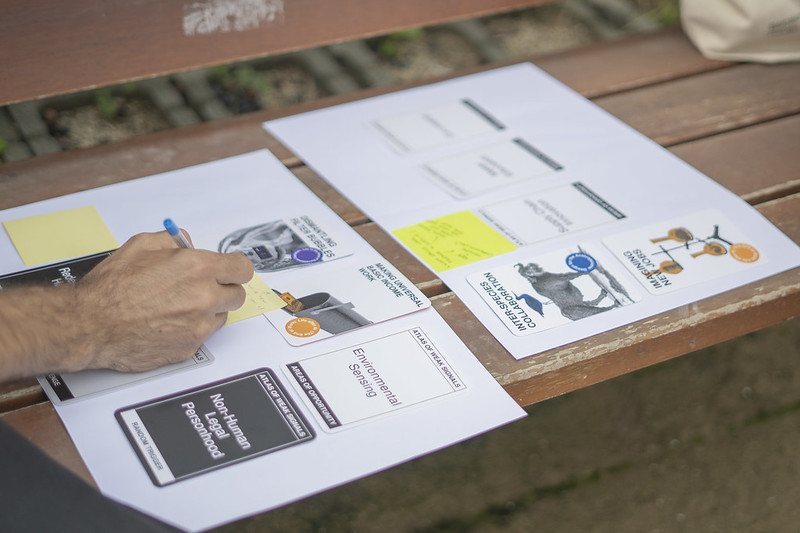
Methods and Tools of Teaching and Learning
In the rapidly evolving world of design and maker education, keeping pace with emerging pedagogical practices is essential. A forward-thinking mindset is crucial in encouraging the integration of cutting-edge technologies and experiential learning methods. Guillem Camprodon, director of Fab Lab Barcelona and the Master of Design in Emergent Futures (MDEF) at IAAC, stressed the significance of staying open to emerging pedagogical practices. Integrating cutting-edge technologies and experiential learning methods can engage learners more effectively, fostering their creativity and critical problem-solving abilities. Within the MDEF program, learners are encouraged to work in design spaces that create alternative presents. Alternative presents is a term that is being used to make futures more tangible, connecting to the social and environmental responsibility that designers have today in shaping the desired future(s) that are sought out.
Balancing Theory and Practice
The perennial debate surrounding the balance between theory and practice found resonance with all participants in the conversation. Emphasizing the significance of both aspects, we recognized the need for a symbiotic relationship between theoretical knowledge and hands-on experience. This integrated approach equips learners with a solid foundation while also encouraging them to apply their ideas in practical settings, promoting a dynamic and adaptive learning process.
In conclusion, “NEB Talks: The Future(s) of Design and Maker Education” offered a glimpse into the cutting-edge developments shaping the field of design education. The New European Bauhaus framework represents a promising and visionary path for the future of design and maker education. By embracing interdisciplinary thinking, reimagining organizational models, and fostering inclusivity, a new generation of designers and makers can be empowered to create a positive impact on society and the environment. We will continue to explore and get inspired by the NEB and the practices and knowledges of our peers to transform the landscape of design and maker education.
CALL TO ACTION
Barcelona based? Find out more about LaCreatura and join their workshops – More information on their website and social media.
Intrigued by the School of Commons? Join their events or program – More information on: https://www.schoolofcommons.org
Want to challenge the way things work today and design for tomorrow? Then the Masters in Design for Emergent Futures is right for you – The link to the yearly open call for applications can be found here.
